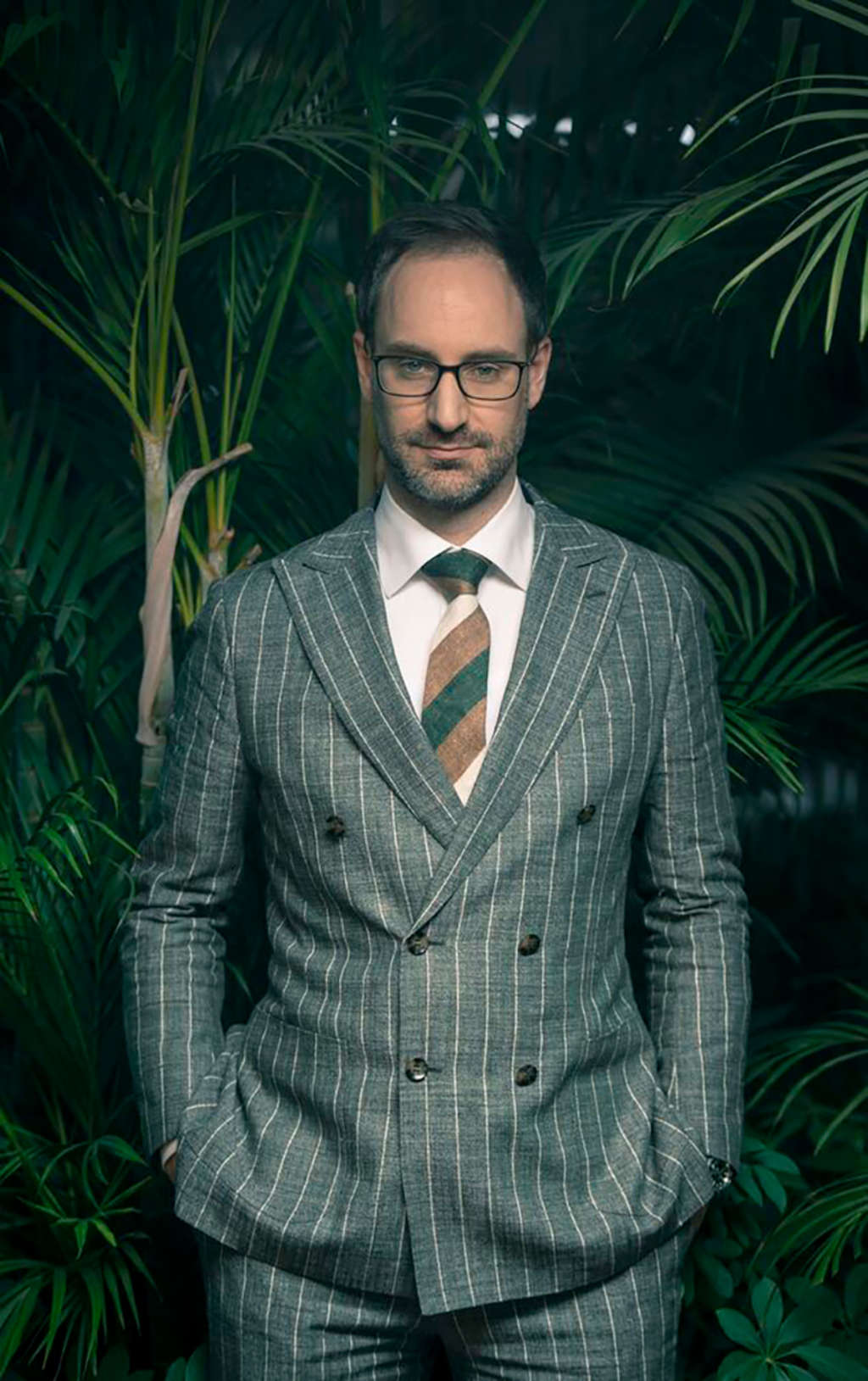Data-Based Cleanliness Proof To Reassure Guests In The COVID-19 Era

Cleaning protocols, sanitary standards and hygiene procedures. In the age of COVID-19, these terms have become omnipresent. Most hotel groups have implemented new security and hygiene protocols to reassure guests and make them feel safe. All those standards come with high costs (mostly on the hotel owner's side), while hotel teams work hard to create a safe space for guests and staff. But how effective are those practices and does the guest really feel reassured because of them?
ARVE is a Swiss start-up and a current member of the EHL Incubator. In response to the COVID-19 crisis, ARVE has introduced its newest service: a dedicated data-based cleanliness certificate that can offer an everyday verification of the proper execution of cleaning protocols, giving hotels a new tool to track cleaning performance. During these uncertain times, simply promising guests the room has been cleaned is not enough. Hotel guests want proof of trustworthy hygiene protocols being followed. ARVE is the first service that can fulfill this need through data-driven intelligence.
We had a discussion with Ian Millar (Manager of Inst. of Business Creativity & Senior Lecturer EHL Group) and Dany Lützel (General Manager Hotel Éclat Beijing) on what it would mean to be able to provide guests with digital proof.
Ian Millar is Manager of the Institute of Business Creativity and Senior Lecturer of Hospitality Technology at EHL, where he has been teaching for the past 19 years. Currently, he is the vice-chair of HITEC Europe and the recent winner of the HFTP 2020 Paragon award "for his unwavering support of the association and substantial contributions to increase knowledge sharing and promote growth in the hospitality industry at large, specifically among students and hospitality professionals within Europe."

Learning from Mr Millar's expertise in hospitality technology, we wanted to investigate how data-based management and cleanliness proof can become a competitive advantage for hoteliers during the COVID-19 crisis.
Where do you see the opportunity to use technology to mitigate the negative effects that COVID-19 has on the hospitality industry?
Ian Millar: As soon as COVID-19 hit, there was a reaction from the hotel industry to bring out new cleaning protocols. As much as these were needed, mainly to reassure the public, not one of them was based on any evidence. Social distancing, customer tracing and other issues hotels have had to deal with has made operating a hotel even more complex than before. We have seen the usage of QR codes, more mobile applications and technology come into play to reduce the "touching" part of the stay but we still have a way to go. What we will need going forward is more "evidence" that hotels are respecting the cleaning protocols and distancing rules for their guests' safety but also that of the hotel team. I think another thing we should be discussing is another lockdown. This looks likely in a lot of countries at the moment, and governments would be hard-pressed to shut down hotels and restaurants again, that will be the nail in the coffin for many. Maybe hotels that can "prove" they are at the required level may still be able to operate in some way.
Can you talk a bit more about IoT and opportunities they can bring for the hospitality industry?
Ian Millar: I think IoT (Internet of Things) has massive potential in the hospitality industry. It would allow owners and operators access to real-time information about what is going on with the physical asset "Property Technology" and also allow operators to gain a better understanding. We could be applying preventative maintenance in real-time, automize checks on fridges and freezers for HACCP, we could see where clusters of guests are in hotels or not. With new WIFI 6 standards and 5G coming into play this will accelerate IoT in hospitality for sure.
What would be the value of data-based proof of the cleaning protocols regarding trust and confidence of guests?
Ian Millar: Guests would appreciate "proof", I don't know if it is the absolute 'must' right yet, but being able to prove to guests, when their room was cleaned, how long ago someone was in their room, what chemicals were used, I think would be a great thing to have.
What would be the value of data-based proof of the cleaning protocols regarding the operational efficiency of hotels?
Ian Millar: Data from cleaning events could lead to a better-organised housekeeping department. On one hand, it would allow management to know that the staff are cleaning the rooms correctly (very useful if you use a third-party contractor), and on the other hand, it could give management data-based information about the performance of the team. The result is accountability. As soon as a guest has "proof" that their room was not cleaned correctly and leaves a review online, then there is trouble. This also goes for staff. Hotels must protect their guests but also their employees. Being able to prove to their employees that they are in a safe working environment will be paramount, maybe even a requirement like HACCP in the future.
Before COVID-19 you were a very frequent traveler yourself. What will impact your decision to stay at a hotel in a post-COVID-19 world?
Ian Millar: Firstly, it will be the location of the hotel. I would want to avoid moving around too much once I am where I want to be. Secondly, I would stay in a branded property. They are more likely to be applying a stricter cleanliness procedure than an independent hotel. Thirdly, those that offer in-room dining will also be higher up in my choice. A must would be self-check-in and mobile keys.
Dany Lützel was born and raised in Lucerne, where he completed the Swiss Hotel Management School. Ever since, he has been passionate about the hospitality industry and has worked in and managed several hotels in Switzerland. After moving to China in 2013, he managed the Kempinski Hotel in Chongqing and opened the Niccolo Hotels. Since 2017, he has been working as general manager of the Hotel Éclat in Beijing which offers luxury accommodation right in the Central Business District of the city.

From Mr Lützel we learned how hotels deal with the challenge to rebuild guest trust and how data is perceived in the eyes of a hotel professional with his level of experience.
What is the biggest challenge hoteliers are currently dealing with?
Dany Lützel: Besides the challenges of financial uncertainty and my staff's welfare during these times, I am seeing a high reluctancy by guests to come back and stay at hotels. On the one hand, guests want to be assured of the cleanliness and safety at the hotels, and on the other hand they want all amenities to remain available. So, getting the trust and loyalty from our guests back is probably the biggest challenge at the moment.
What measures have you taken to reassure your guests?
Dany Lützel: We are communicating all of our COVID-19 measures to our guests online and upon arrival. Those measures range from body temperature checks at the hotel entries to extra disinfection of the top 10 high-touch areas in guest rooms. Additionally, more frequent cleaning services in the public spaces have been implemented to minimize the risk of viral transmissions from hard surfaces such as walls, doorknobs, elevators and countertops. Our F&B department is responsible for maintaining a safe and hygienic service. All team members are required to check their temperature before starting work. At the same time, the kitchen and dining areas are maintained in strict accordance with hygiene standards and protocols, including regular disinfection and cleaning.
Would providing guests with data-based information help to increase occupancy in the medium run?
Dany Lützel: I think that if there was a way that the guest could come to the hotel, check into the room and feel 100% contamination-risk-free, it could highly support us in the recovery phase. However, as we can't tell people what they are supposed to feel, we should do our best to prove to them that we are doing everything we can to create a safe and risk-free environment. Data-based proof that the cleaning promises we make to the guests have actually been followed and that our housekeeping team is doing a good job would be the most unbiased and transparent way there is to regain their trust and loyalty.
What do you think are the most important aspects of ARVE?
Ian Millar: "I like what ARVE is doing as it brings data to the table. One of my favorite sayings is "data doesn't care about your feelings. For too long we have made decisions based on gut feeling and intuition. This has to end, and we need to bring evidence and proof, facts and figures to future decisions. ARVE plays its role in that process."
Dany Lützel: "After the COVID-19 crisis, travelers will pay more attention to the health aspect of air quality and hygiene. The unique and innovative services that ARVE provides to hotels can become a big competitive and differentiating advantage in a highly competitive marketplace."
Conclusion
Cleaning, sanitation, hygiene and safety have become more than just marketing buzzwords in the era of COVID-19. Experts agree that redefined SOPs are an important first step. What will drive the decision of guests to come back to hotels in the future, however, is trust and reassurance that they can stay in a safe environment. Data-driven insights, data management and technologies like IoT will become increasingly important assets for hoteliers to understand what is going on in their property and to assure a certain quality standard. At the end of the day, it all results in a higher level of well-being and peace of mind for guests and hotel employees.
A special thank you to Ian Millar and Dany Lützel for their personal opinions and expertise on the subject.
